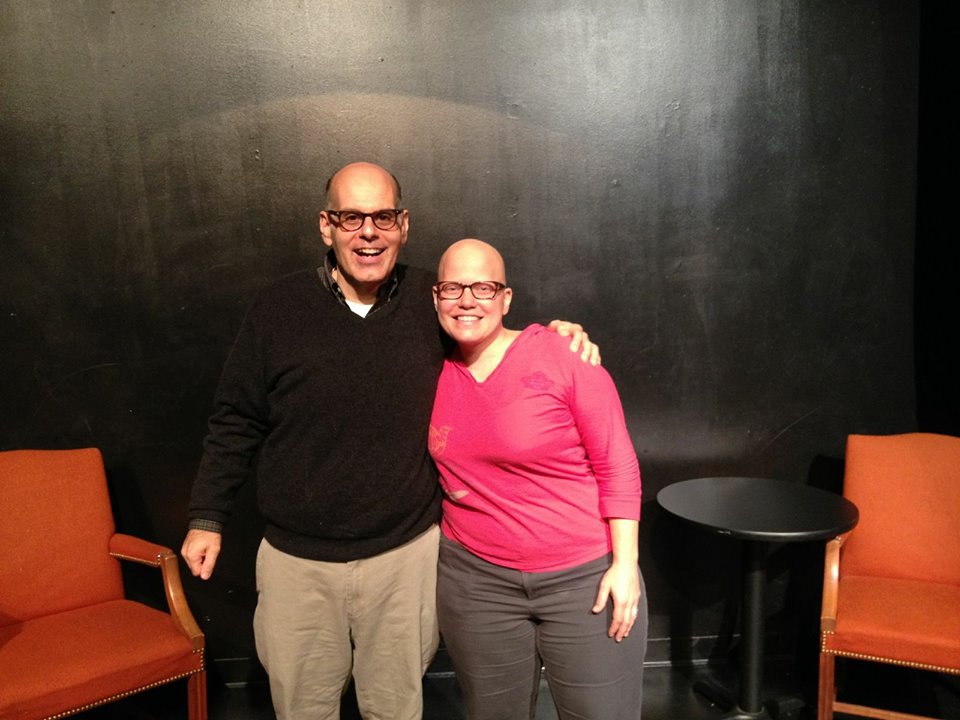Your Pain is Your Gold

We have all experienced a fair amount of pain in our lives -- from our parents getting divorced to being picked on in school or breaking up with someone.
Most improvisers want to avoid thinking about their pain, thinking it's not appropriate because they're doing comedy. The problem is not that we have pain, it's how we use it.
Instead of getting rid of our pain or denying it, we need to bring it on stage with us, and by doing that, we not only get rid of it, we can create something memorable.
One of my favorite acting teachers is Kathy Scambiatterra at The Artistic Home in Chicago, and she would say to us in class "Your pain is your gold." This is as true for improv as it is for acting, or for any other art form. That pain she was talking about is what makes us unique as artists.
Recently one of my students in my Advanced Improv Class was doing a scene where he was playing a father and another student was playing his daughter. They made the discovery in the scene that the father was going to divorce the mother. One game in the scene that seemed to emerge was that the father was blaming the daughter for the separation. All he had to do was heighten this by laying on the blame to his daughter even thicker and not taking any responsibility for the divorce. Pretty straight forward.
As I side coached the students to follow this direction, he seemed to resist. Afterwards he explained why. He said he had come from a divorced household and his parents had blamed him for their divorce. Because of his bravery to talk about this in class, he had chance to heal something from his life that was limiting him on stage.
All actors and improvisers have blind spots, and it is our job to correct them so we can see more opportunities on stage.
I had a chance to try this out when I was cast in an independent film called Stash, where I played a character that people thought was a pedafile, but who was actually a clown-afile. He had a room in the basement of his mother's house where he got off to all these clowns and circus memorabilia.
The joke was he was into clowns not kids. Even though I had been cast, I resisted because I was sexually abused when I was 14 by my junior high history teacher, and playing that part triggered me. I didn’t want to play a perpatrator of any kind. I was scared and uncomfortable. What would people think?
But avoiding taking the part was not the answer. Instead, I had to face this issue, because it was obviously something I needed more healing around and because it was blocking me on stage and in life.
I was not even aware how this was limiting me in my acting until I started to speak about in therapy. I brought it up to my crazy shrink who said, "Why wouldn't you want to play this part?"
"Why would I want to play a part of someone who did such a horrible things to me?" I asked. My therapist convinced me that playing a part I was terrified to play was an opportunity to heal from my sexual abuse. My moving toward my pain, I could correct a blind spot that would give me more range as actor.
I was full of fear but decided to do it. It turned out to be a lot of fun and the director/writer allowed me to improvise and said "Your lines are better than mine" -- one of the greatest compliments you can give an improviser.
I was grateful I did it because I was not even aware how much I was avoiding this subject matter until I was confronted with it. It helped me tremendously as an actor and as a teacher, because now I have had this experience and can now share with you. That is priceless.


How beautifully insightful. Your blog is gold.
Thank you for writing about pain, Jimmy. It is tool of precision that gets us to the Truth faster than any invention.
Be well, Rebecca in Colorado
Thanks for sharing this "gold" Jimmy. I have not had the pleasure of watching you teach yet. Your students are lucky to have such a caring soul guiding them through this beautiful art form. As a fellow improv instructor I don't feel equipped to handle certain issues that can occur in a workshop. Some things deserve certified therapy. However, in the right hands (yours) I totally agree that improvising is a therapeutic experience. I used it to design a class on racial healing; it was the powerful workshop I ever was a part of. You are so right: the most trying moments in our life, maybe even our biggest mistakes, can become our greatest assets, that is, if we choose to uncover the good inside. I must see you teach someday. Peace!